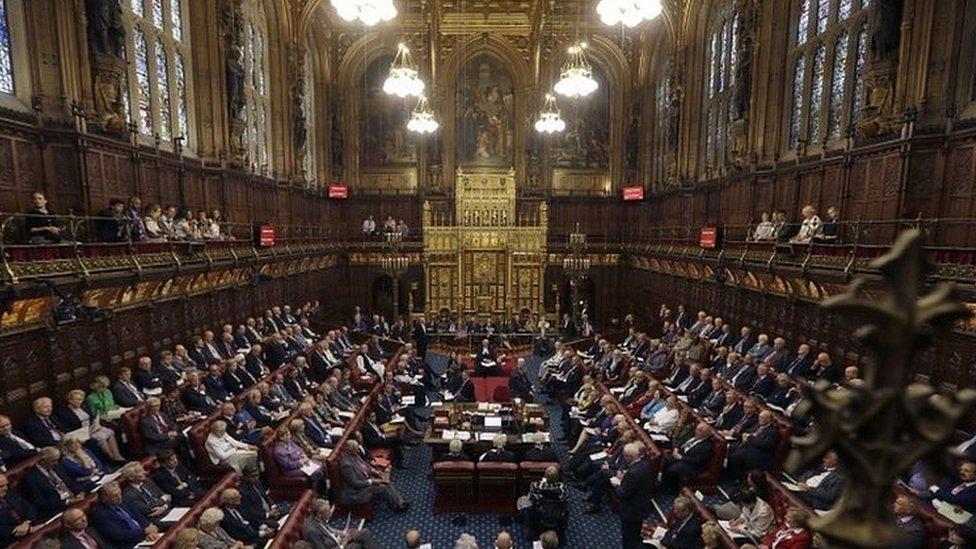Why is Theresa May dropping House of Lords reforms?
- Published

Peers seemed to enjoy every moment of tearing George Osborne's plans to cut tax credits apart. The government was utterly furious.
After months of denying that there was no chance of budging, the House of Lords killed their plans, that crucially, had been part of the Budget, stone dead.
That night No 10 claimed it was a "constitutional crisis", and was even more cross that journalists seemed not, inevitably, to take that view especially seriously, and to focus instead on the huge U-turn that had been forced upon them.
I remember going to interview the chancellor that night, and it was one of the handful of occasions when he appeared nervous, even a little green around the gills.
But now, the revenge plan, as some saw it, to curb the power of the Lords, and strip them of the ability to veto legislation called statutory instruments, is being quietly shelved by the new No 10.
What constitutional crisis? There are several reasons why the Strathclyde proposals are now never likely to see the light of day.
First, as if it needs saying, the political circumstances are transformed from this time last year. The government is trying not to fall into a black hole of Brexit, so some of the priorities of the previous administration that might have caused trouble in Parliament are being ditched.
Second, Theresa May is a pragmatist. These plans were deeply controversial, described as the Labour Lords leader as an "absurd overreaction", and themselves might have struggled to get through Parliament.
And third, sources have suggested that the government seems to want to rebuild a more traditional relationship with the Lords, dial down the confrontations and work more constructively together.
As Lord Strathclyde, who authored the plans said, "legislation should be a last resort". But another source suggested the chances of mollifying the Lords, particularly the Lib Dems, were slim to none.
The government needs the Lords on board to pass the coming mountains of Brexit-related legislation - it was suggested that there might be as many as 2,000 statutory instruments that require votes as part of the Great Repeal Bill next year.
The government may come to regret giving up this chance to take the Lords down a peg or two.